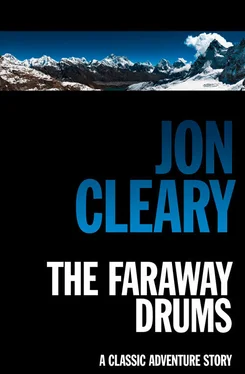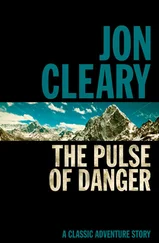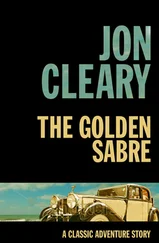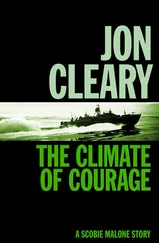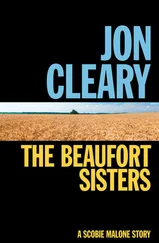To my surprise the Nawab did not seem annoyed at Lady Westbrook’s intrusion. Instead he laughed and shook his head at me. ‘Ah, do you not love the English? They walk all over us and expect us to love them.’
‘Wrong, Bertie,’ said Lady Westbrook, taking out a cheroot and fitting it into her ivory holder. ‘We never look for love, that’s not an English need. What about you Americans, m’dear – do you look for love?’
‘All the time.’
‘Foolish – you’re due for so many disappointments.’ She puffed on her cheroot, looked up and down the platform. ‘Well, we’re going to be a jolly little party, aren’t we? If only they can keep those damned children quiet . . . Be off!’ She slapped at some children who were chasing each other round us. ‘Ah, here comes Major Farnol. My, how handsome he looks!’
She looked at me as soon as she said it and I recognized her as another of those banes of the lives of young presentable girls. She was a woman who, with too much time on her hands, exercised herself by playing match-maker. I looked away from her and at Major Farnol as he approached. Unlike most military men he moved with considerable grace; West Pointers, for instance, tend to walk like flagpoles. He was dressed, as he had been this morning, in his field uniform of khaki tunic, breeches, highly polished riding boots and topee. It was drab in its colour but somehow he gave it a dash of glamour, though we did not use that word in those days. He saluted me and Lady Westbrook and winked at the Nawab, with whom he seemed on intimate terms.
‘Are we all sorted out? Am I still riding with you, Bertie?’
‘Of course, old bean.’ The Nawab seemed eager to play the genial host. ‘But I thought you’d be riding down with Mala.’
‘Nothing ever escapes the gossips up here, does it?’
‘It’s food and drink to us,’ said Lady Westbrook. ‘Are you having another affair with her? The Ranee’s a man-eater,’ she explained to me. ‘Destroyed more men than any tiger.’
‘But not me.’ Major Farnol smiled, winked at the Nawab, then, as an afterthought, winked at me. ‘I’ve reformed, Viola. I’m positively monkish.’
‘Like those monks in The Decameron .’ But Lady Westbrook gave him an affectionate smile.
Then the station-master blew his whistle and the assistant station-master blew his and the engine-driver blew his; we were whipped aboard the train by a chorus of thin blasts. The train drew out past a packed mass of smiling faces and waving hands, the Europeans left behind standing in the front of the crowd, the Indians bringing up the rear. I had noticed on my journey up from Bombay and then from Delhi up to Simla that railroad stations in India are never empty, that even in the middle of the night there were always people standing, sitting or lying fast asleep on the platforms. They came there for company, for shelter, for some distraction from their poverty; but they always looked to me as if they were waiting to be asked aboard, to be given a ticket on a journey to anywhere but that spot where they waited so patiently and hopelessly. I sometimes wept at the hopelessness one found in India and I understand it has got no better, is even worse now than then.
We all settled down in the Nawab’s private car, which was far more luxuriously decorated and furnished than any Pullman car I had seen back home, even that of the President. The wives sat at one end, cramped together on two couches covered in red silk; three of them, the younger ones, kept their veils up across their faces, but the three older ones sat and watched us with bare-faced curiosity. I looked for some resentment in their stares, but there was either none or I was not sharp-eyed enough. The Nawab seemed oblivious of them, which, I suppose, is a good defence when you have six of them.
Though it was only 65 miles down to Kalka, the journey was going to take us at least five hours. The railroad track wound its way in a series of loops down through the hills, with never a stretch of straight track longer than a hundred yards; coming up, I had been struck by the number of tunnels we passed through and then had seen the numbers painted at the entrance to each one; the final number had been 103. The train went round its first long curve and I looked back through the window and saw the open wagons and the flat-cars at the tail. The elephants and horses stood swaying in the wagons, backs to the smoke from the locomotive blowing back over them. On the last flat-car, their backs also to the smoke, were the dozen soldiers who were our escort. That, I guessed, was the order of precedence, the British Tommy right back there behind the elephants and horses.
I turned back and looked at Major Farnol. The Nawab and Lady Westbrook had got up and moved to the front of the car where a bearer was serving them tea and biscuits. ‘Still nothing on Major Savanna?’
‘He’s disappeared completely.’
‘Are the telephone and telegraph wires still cut?’
‘I checked just before we got aboard. The wires are still dead. Captain Weyman is now worried about what has happened to the men he sent down the line.’ He looked out at the hillside dropping away like a cliff right beside us. The tops of the pines and cedars were just below us and it was as if we were riding on a rattling magic carpet above the forest. Monkeys swung along the tree-tops, keeping pace with us like urchins, and the children in the train hung out of the windows and screamed encouragement at them. ‘We have just two stops, at Solan Brewery and Bangu. Don’t get out, stay here in the carriage.’
‘Is that an order?’ I said with a smile.
‘Yes.’ But he didn’t return my smile.
We had been travelling for no more than half an hour, had gone perhaps no more than five or six miles, when the train abruptly began to slow, the wheels screeching on the rails and the cars battering each other with a loud jangling of iron buffers. I put out a hand to steady myself and it fell on Major Farnol’s knee opposite me. He put his hand on mine, pressed it, then rose quickly and went to the door that led out on to the rear platform. I saw that he had taken his pistol from its holster as he stepped out the door.
‘Damned trains!’ Lady Westbrook was on her second cup of tea; or rather it was on her. She wiped herself down where the liquid had spilled on her. ‘Never a journey without something going wrong!’
‘They are still better than making that dreadful journey up here by tonga , all those painful weeks by cart. You don’t really want the old days to come back, Viola.’ But the Nawab was not paying any real attention to her. He handed his cup to a servant, brushed past his wives, snapping something at them in Hindi that stopped their chattering in an instant and went out on to the rear platform to join Major Farnol.
I stood up to follow him, but felt Lady Westbrook’s hand on my knee. I was surprised at the strength of it; it was like a claw. ‘Stay here, m’dear. Leave it to the men.’
I sank back on my seat. ‘What’s going on?’
She let go of my knee, sat back, rattled her cup and saucer and handed them to the servant as he jumped forward. ‘I don’t know. But in these hills, when the unexpected happens, you learn it is better for women to stay out of the way.’
Then the Nawab came back, no longer genial, looking decidedly worried. ‘I’m afraid this is as far as we go. There’s a bally great landslide up ahead, completely blocking the line.’
End of extract from memoirs .
Farnol jumped down from the carriage, followed by Karim who had been riding on the rear platform. As they began to walk up towards the front of the train they were joined by the sergeant of the escort of soldiers. ‘Don’t look good, sir.’
Читать дальше
